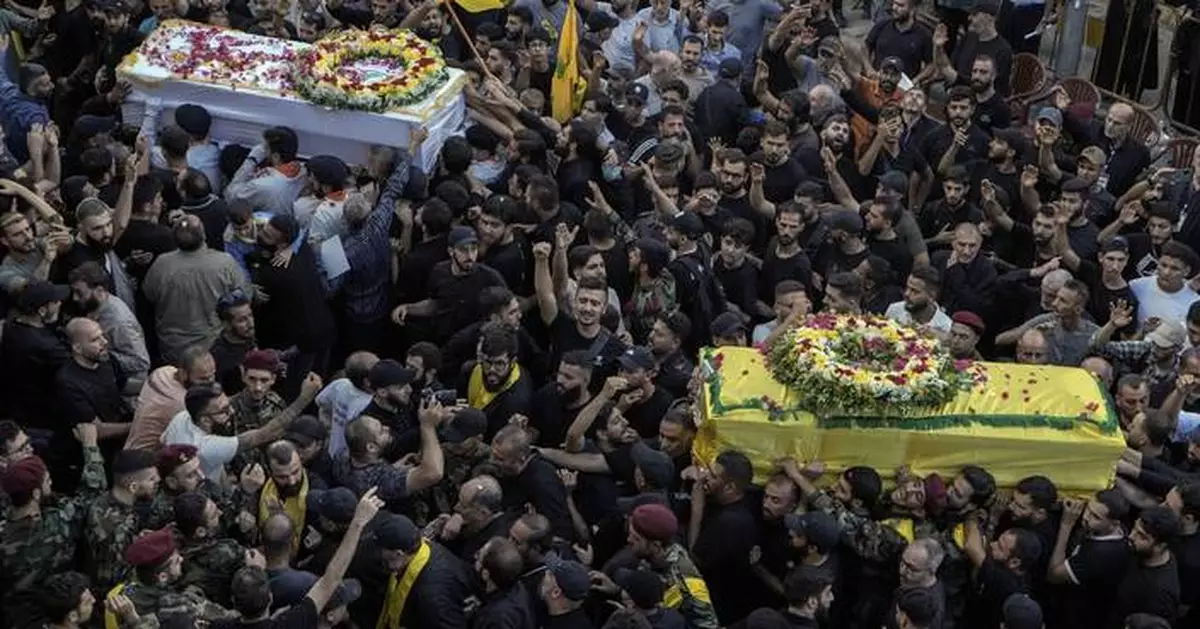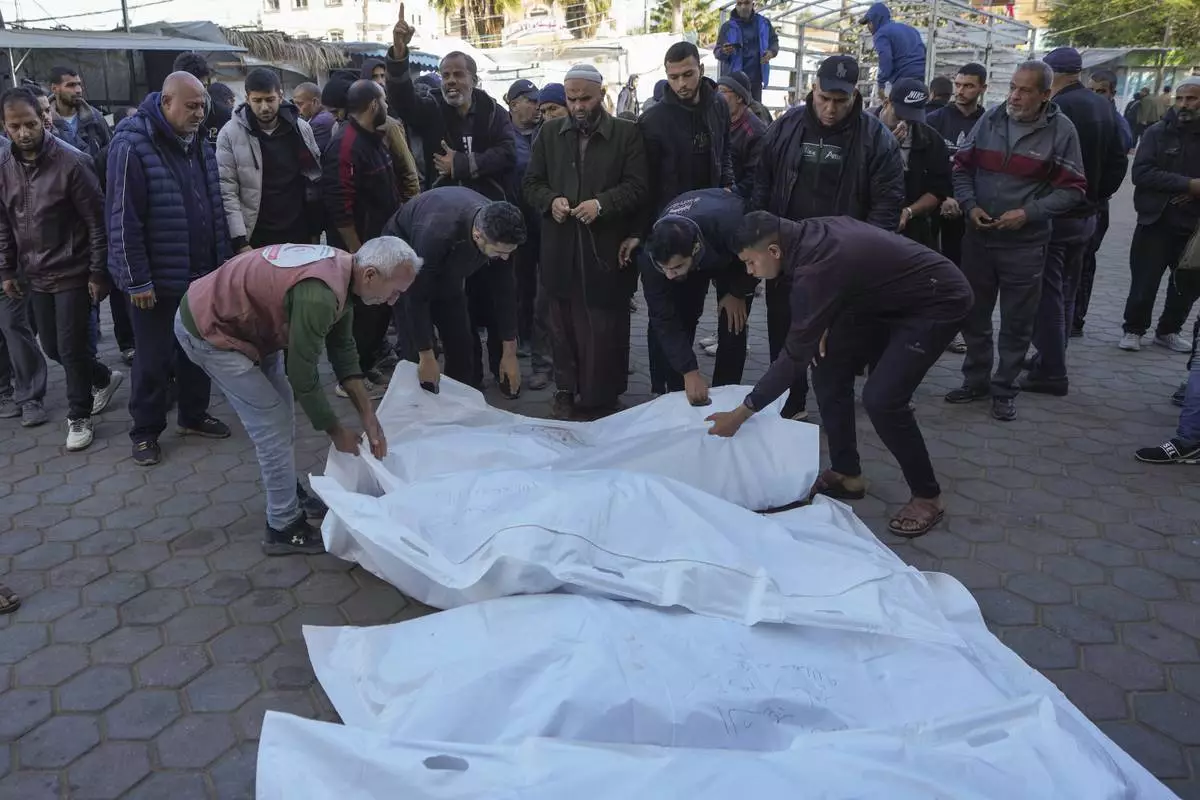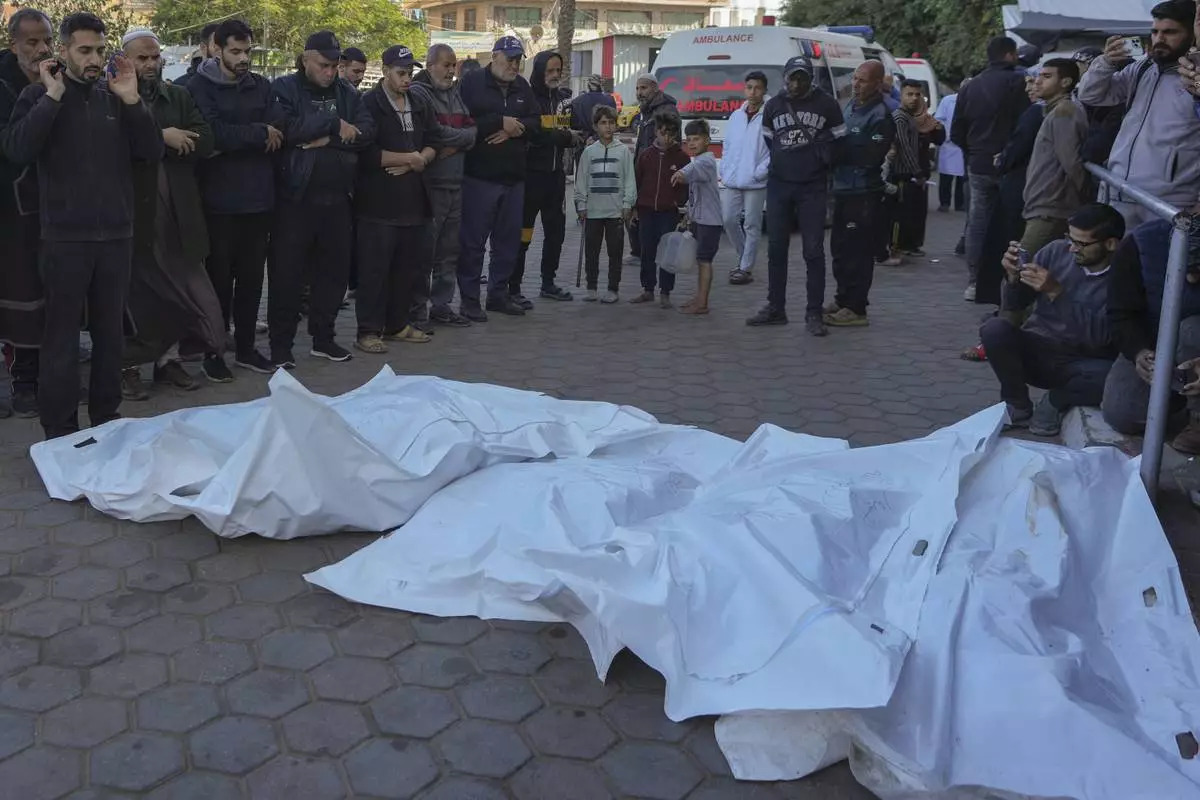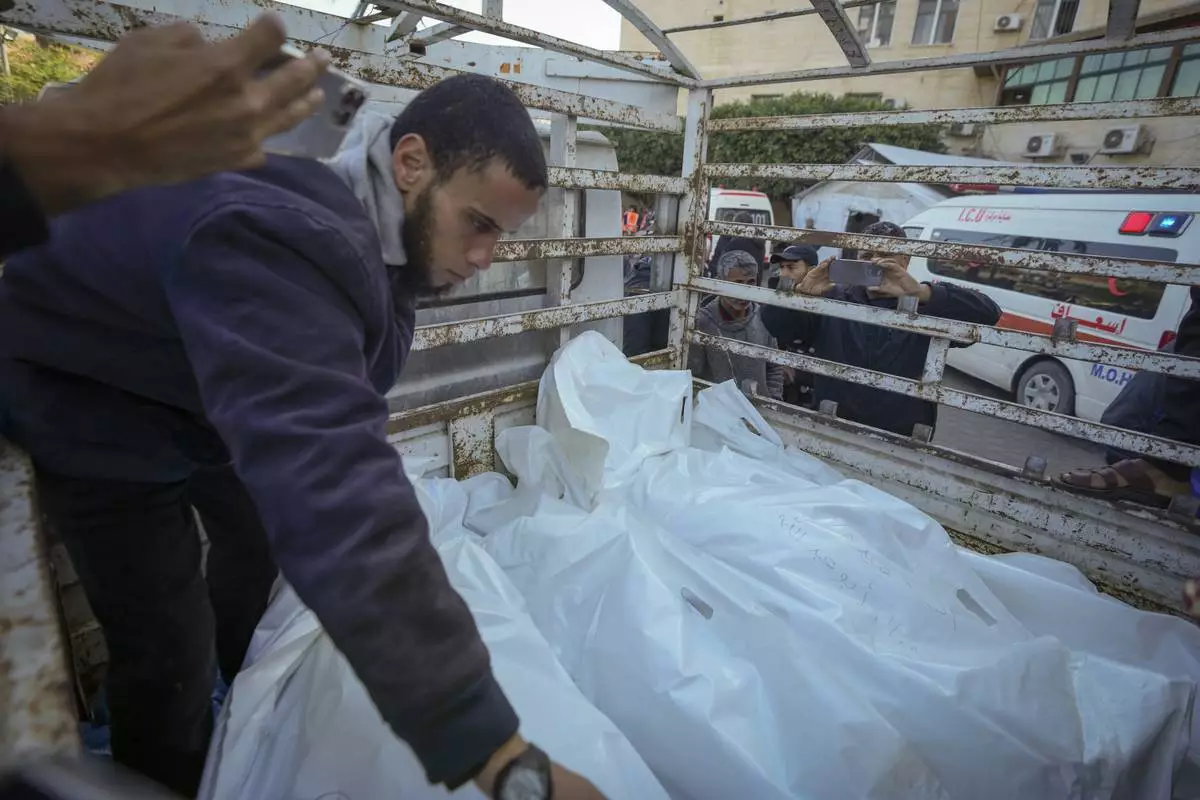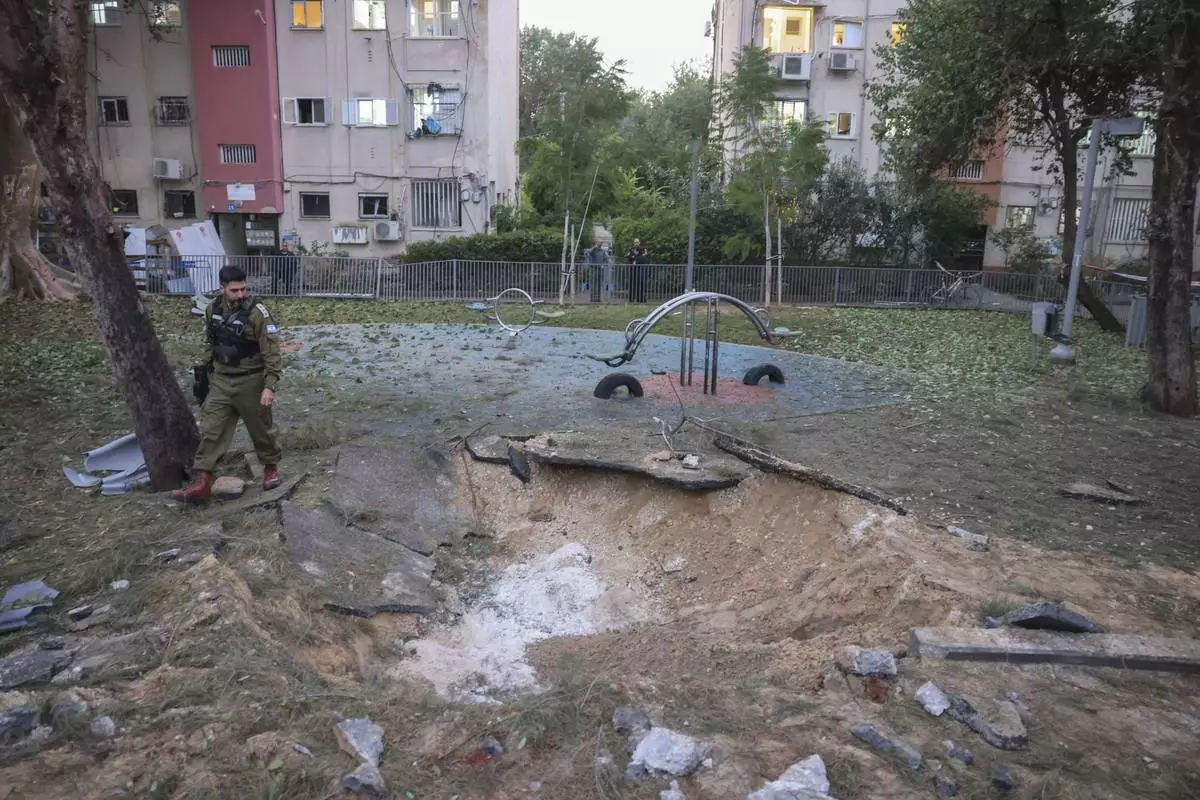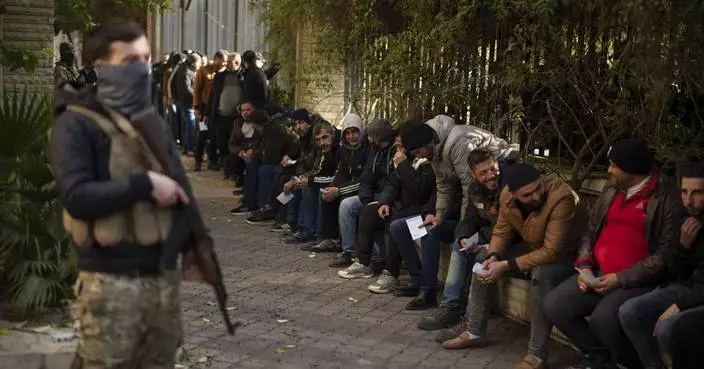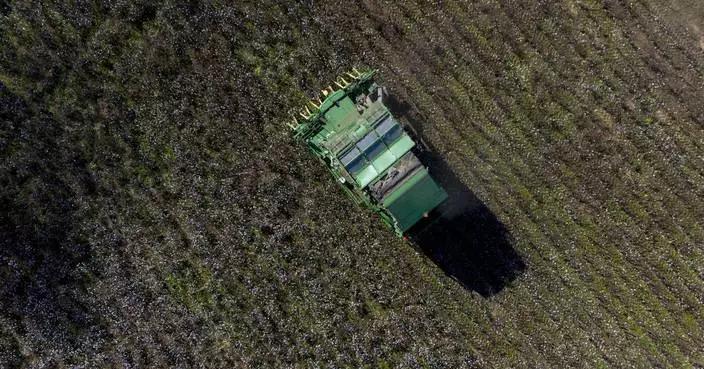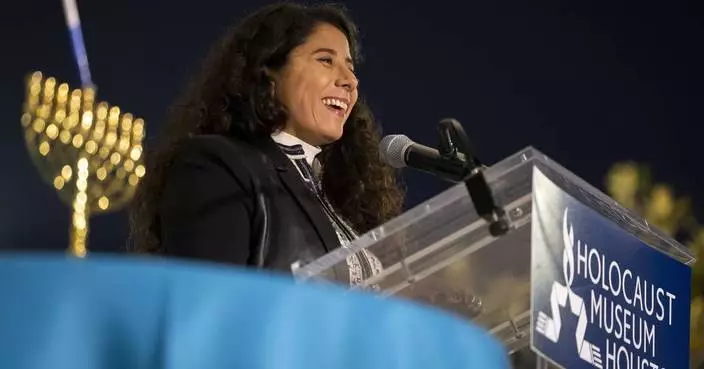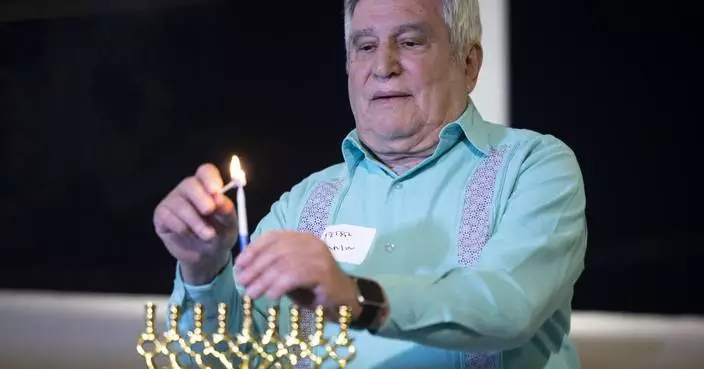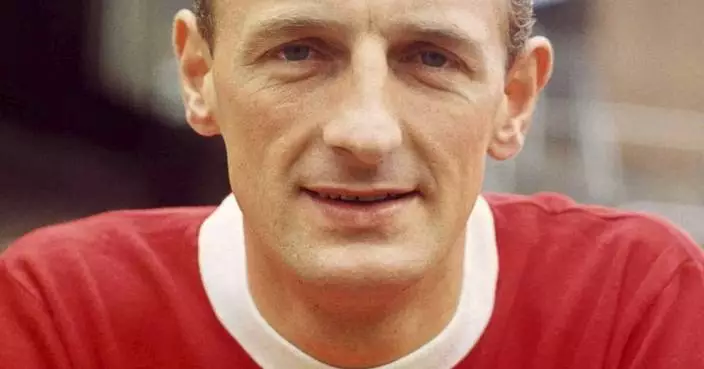BEIRUT (AP) — The leader of Hezbollah vowed Thursday to keep up daily strikes on Israel despite this week's deadly sabotage of its members' communication devices, and said Israelis displaced from homes near the Lebanon border because of the fighting would not be able to return until the war in Gaza ends.
Hezbollah and Israel launched fresh attacks across the border as Hassan Nasrallah spoke for the first time since the mass bombing of devices in Lebanon and Syria that he described as a “severe blow” — and for which he promised to retaliate.
The two days of attacks targeting thousands of Hezbollah pagers and walkie-talkies have been widely blamed on Israel, heightening fears that 11 months of near-daily exchanges of fire between Hezbollah and Israel will escalate into all-out war. Israel has neither confirmed nor denied involvement in the attacks.
During Nasrallah's speech, Hezbollah struck at least four times in northern Israel, and two Israeli soldiers were killed in a strike earlier in the day. Israeli warplanes flew low over Beirut while Nasrallah spoke and broke the sound barrier, scattering birds and prompting people in houses and offices to quickly open windows to prevent them from shattering.
Israel also launched attacks in southern Lebanon on Thursday, saying it struck hundreds of rocket launchers and other Hezbollah infrastructure, though it was not immediately clear if there were any casualties. The army claimed the launchers were about to be used “in the immediate future.”
At the same time, the army ordered residents in parts of the Golan Heights and northern Israel to avoid public gatherings, minimize movements and stay close to shelters in anticipation of possible rocket fire.
In recent weeks, Israeli leaders have stepped-up warnings of a potential larger military operation against Hezbollah, saying they are determined to stop the group’s fire to allow tens of thousands of Israelis to return to homes near the border.
In a Thursday briefing, the Israeli defense minister said Hezbollah would “pay an increasing price” as Israel seeks to make conditions near its border with Lebanon safe enough for residents to return.
“The sequence of our military actions will continue,” he said.
The attack on electronic devices appeared to be the culmination of a monthslong operation by Israel to target as many Hezbollah members as possible all at once — but civilians were also hit. At least 37 people were killed, including two children, and some 3,000 wounded in the explosions Tuesday and Wednesday.
Nasrallah said the group is investigating how the bombings were carried out.
“Yes, we were subjected to a huge and severe blow,” he said. “The enemy crossed all boundaries and red lines,” he said. Pointing to the number of pagers and walkie-talkies, he accused Israel of intending to kill thousands of people at one time. "The enemy will face a severe and fair punishment from where they expect and don’t expect.”
He said Hezbollah will continue its barrages into northern Israel as long as the war in Gaza continues, vowing that Israel will not be able to bring its people back to the border region. “The only way is stop the aggression on the people of Gaza and the West Bank,” he said. "Neither strikes, nor assassinations nor an all-out war will achieve that.”
Earlier Thursday, Hezbollah said it had targeted three Israeli military positions near the border, two of them with drones. Israeli hospitals reported eight people lightly or moderately injured.
Hezbollah says its near daily fire is a show of support for Hamas. Israel’s 11-month-old war with Hamas in Gaza began after its militants led the Oct. 7 attack on Israel.
Israel has responded to Hezbollah’s attacks with strikes in southern Lebanon, and has struck senior figures from the group in the capital Beirut. The exchanges have killed hundreds in Lebanon and dozens in Israel and forced the evacuation of tens of thousands of residents on each side of the border.
Israel and Hezbollah have repeatedly pulled back from an all-out war under heavy pressure from the United States, France and other countries.
But in their recent warnings, Israeli leaders have said they are determined to change the status quo dramatically.
Speaking to Israeli troops on Wednesday, Gallant said, “We are at the start of a new phase in the war — it requires courage, determination and perseverance.” He made no mention of the exploding devices but praised the work of Israel’s army and security agencies, saying “the results are very impressive.”
He said that after months of fighting Hamas in Gaza, “the center of gravity is shifting to the north by diverting resources and forces.”
Israel began moving more troops to its border with Lebanon on Wednesday as a precautionary measure, Israeli officials said. Israel’s army chief, Lt. Gen. Herzi Halevi, said plans have been drawn up for additional action against Hezbollah, though media reported the government has not yet decided whether to launch a major offensive in Lebanon.
Lebanon is still reeling from the deadly device attacks of Tuesday and Wednesday.
The explosions have rattled anxious Lebanese fearing a full-scale war. The Lebanese Army said it has been locating and detonating suspicious pagers and communication devices, while the country’s civil aviation authorities banned pagers and walkie-talkies on all airplanes departing from Beirut’s international airport until further notice.
The attack was likely to severely disrupt Hezbollah’s internal communication as it scrambles to determine safe means to talk to each other. Hezbollah announced the death of five combatants Thursday, but didn’t specify if they were killed in the explosions or on the front lines.
The blasts went off wherever the holders of the pagers or walkie-talkies happened to be in multiple parts of Beirut and eastern and southern Lebanon — in homes and cars, grocery stores and cafes and on the street, even at a funeral for some killed in the bombings, often with family and other bystanders nearby.
Many suffered gaping wounds on their legs, abdomens and faces or were maimed in the hand. Tuesday’s pager blasts killed 12 people, including two children, and wounded some 2,300 others. The following day’s explosion killed 25 and wounded more than 600, Health Minister Firas Abiad said, giving updated figures.
Abiad told reporters that Wednesday’s injuries were more severe than the previous day as walkie-talkies that exploded were bigger than the pagers. He praised Lebanon’s hospitals, saying they had managed to deal with the flood of wounded within hours. “It was an indiscriminate attack. It was a war crime,” he said.
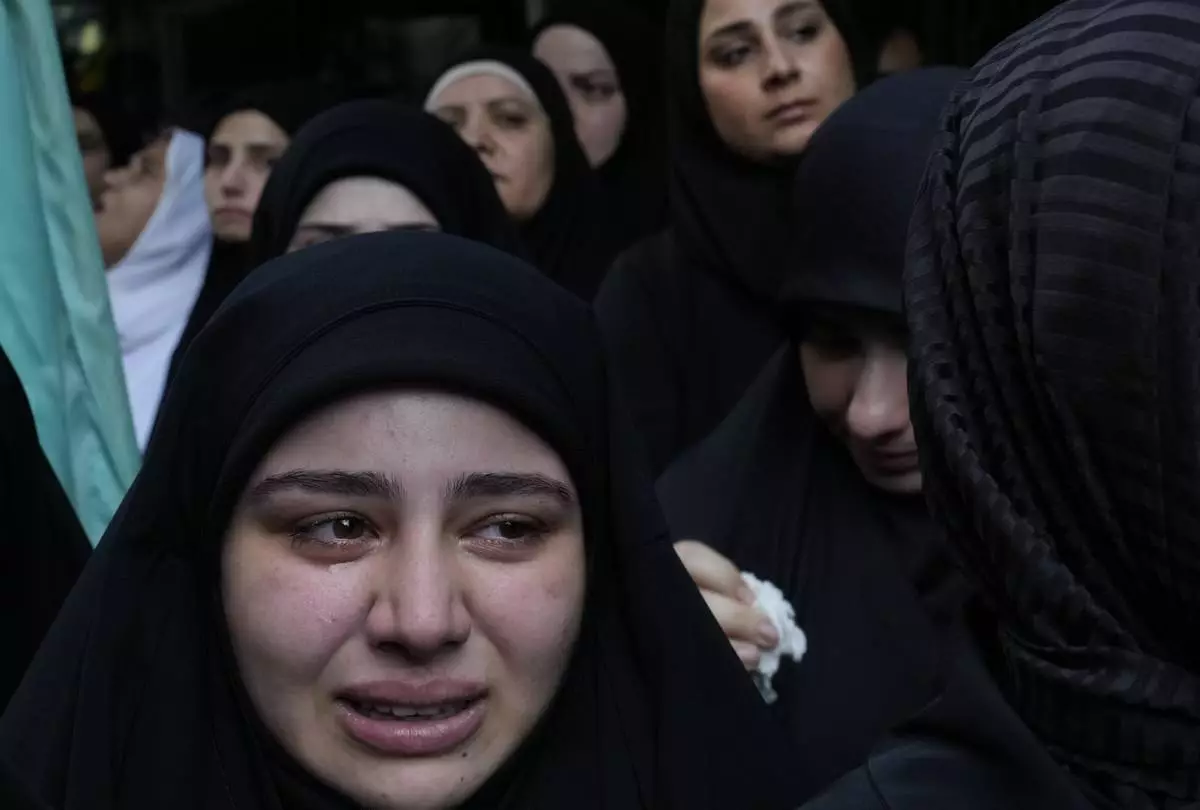
A woman cries during the funeral procession of two Hezbollah members, killed on Wednesday when a handheld device exploded, in the southern suburbs of Beirut, Lebanon, Thursday, Sept. 19, 2024. (AP Photo/Hussein Malla)
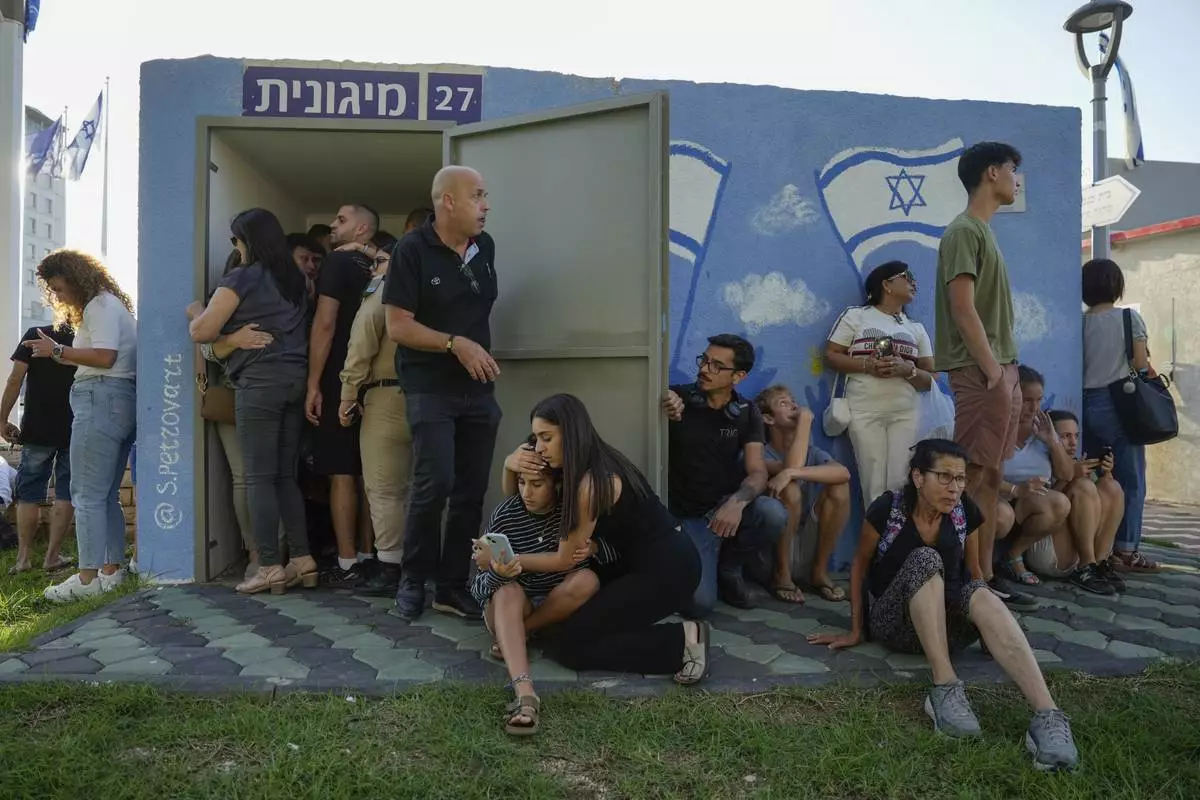
Israelis take cover next to a shelter as a siren sounds a warning of incoming rockets fired from Lebanon, in Nahariya, northern Israel, Thursday, Sept. 19, 2024. (AP Photo/Baz Ratner)
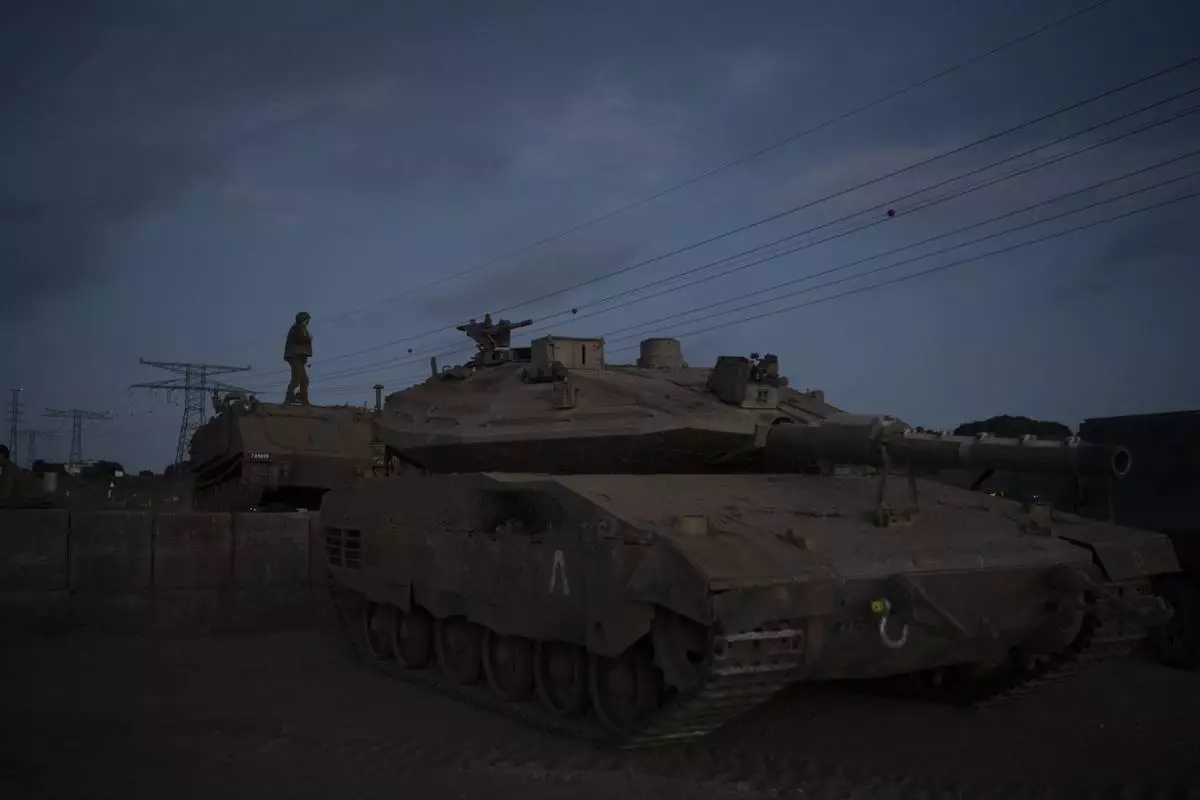
An Israeli soldier stands on the top an armored vehicle on an area in the Israeli-annexed Golan Heights, Thursday, Sept. 19, 2024. (AP Photo/Leo Correa)
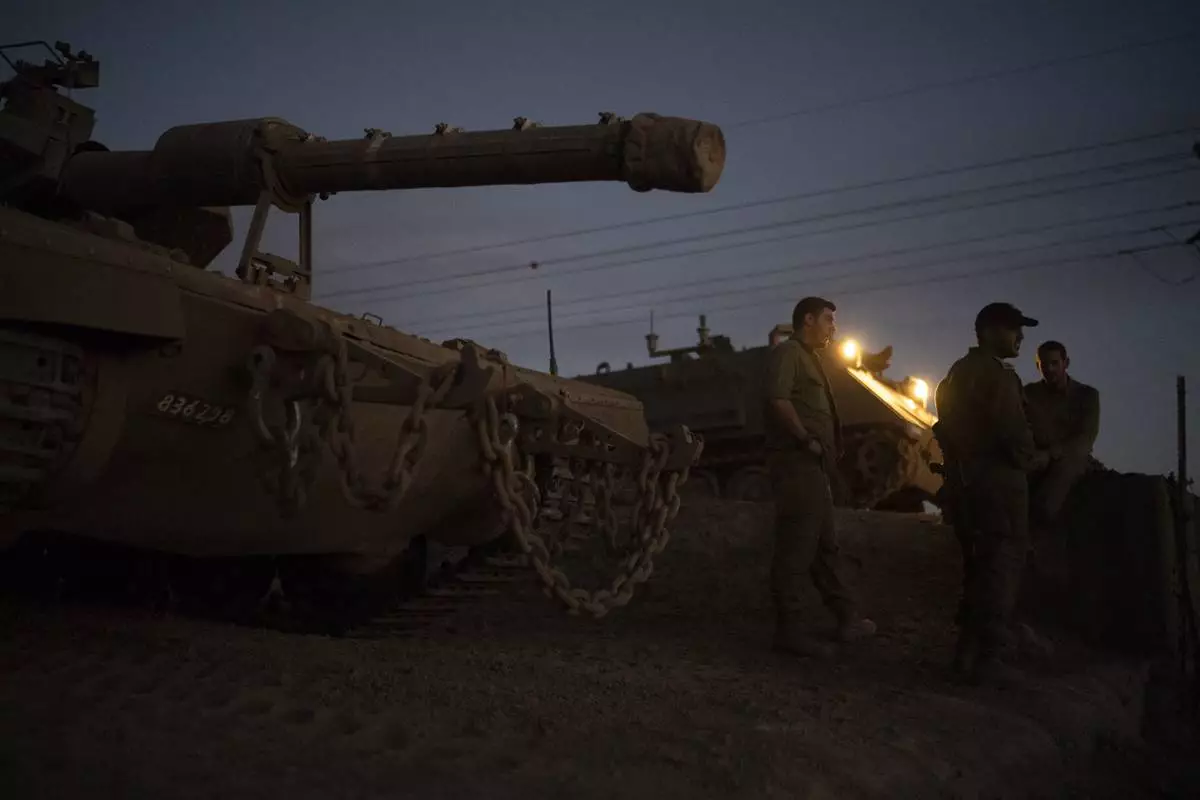
Israeli soldiers stand next to a tank on an area in the Israeli-annexed Golan Heights, Thursday, Sept. 19, 2024. (AP Photo/Leo Correa)
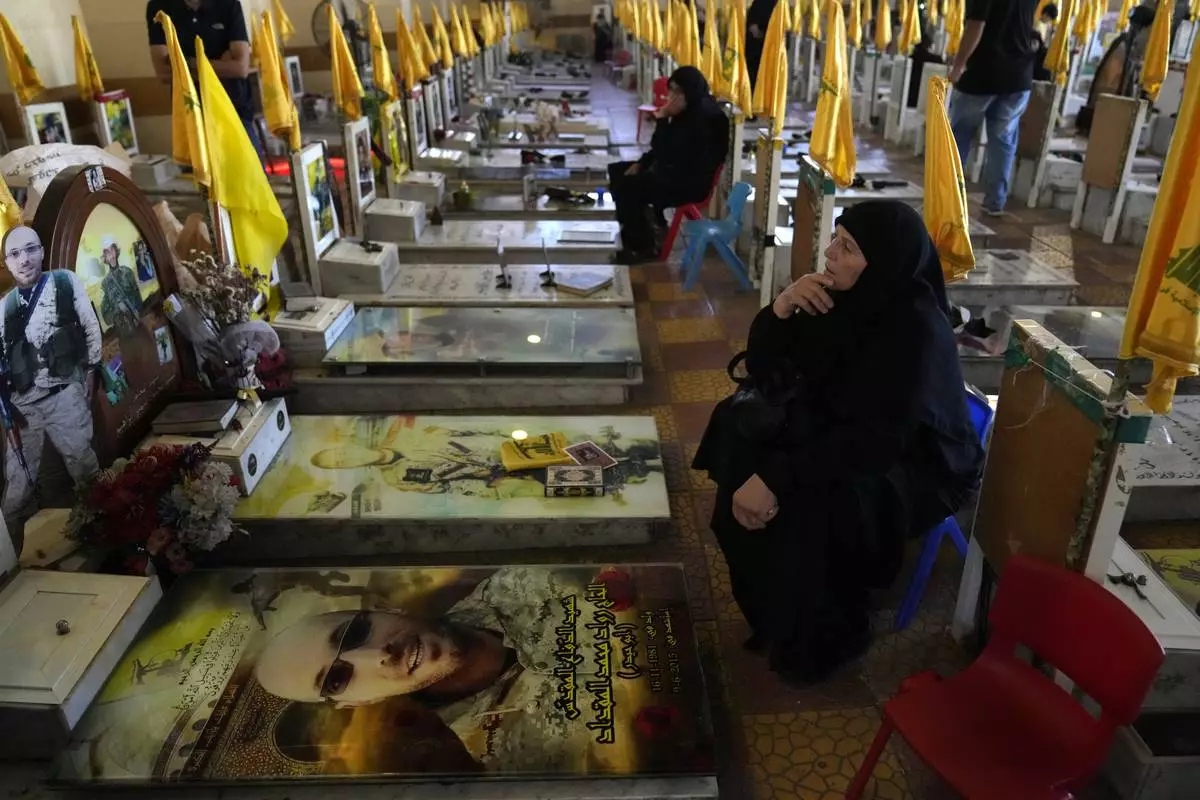
Women sit in a cemetery as they visit the graves of killed Hezbollah members in the southern suburbs of Beirut, Thursday, Sept. 19, 2024. (AP Photo/Hussein Malla)
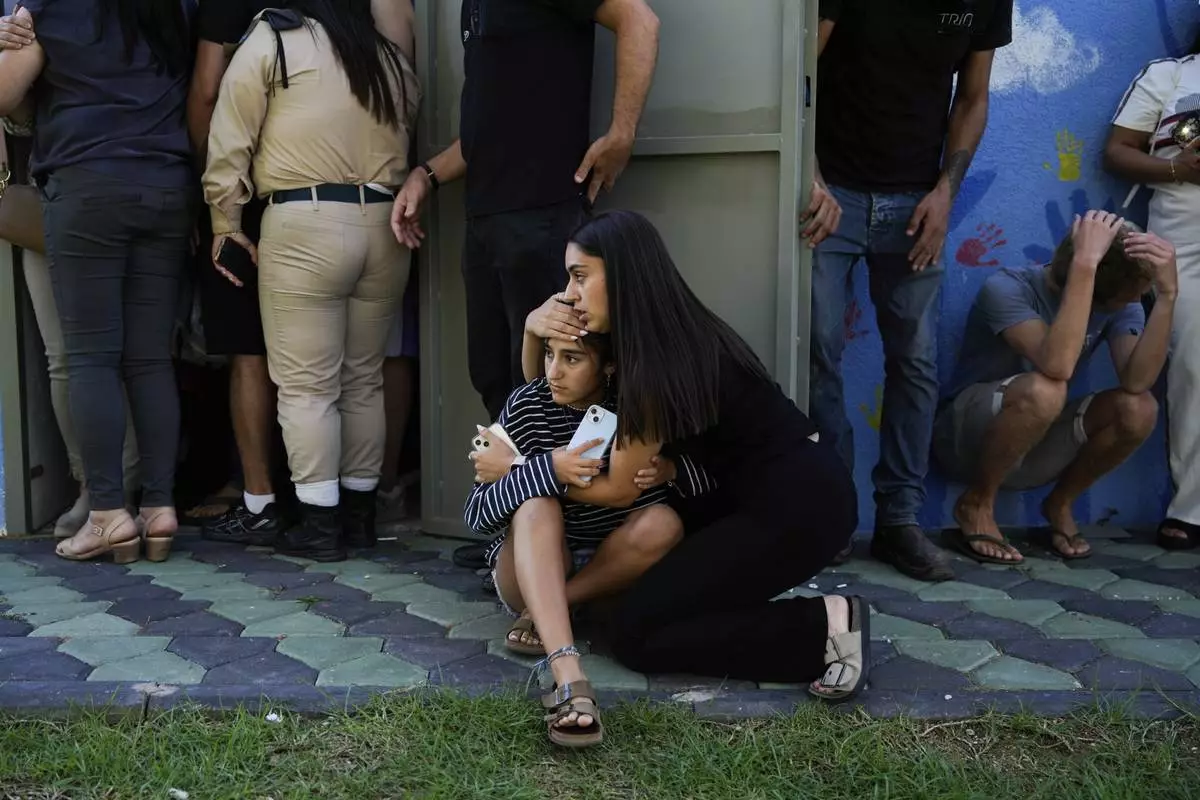
Israelis take cover next to a shelter as a siren sounds a warning of incoming rockets fired from Lebanon, in Nahariya, northern Israel, Thursday, Sept. 19, 2024. (AP Photo/Baz Ratner)
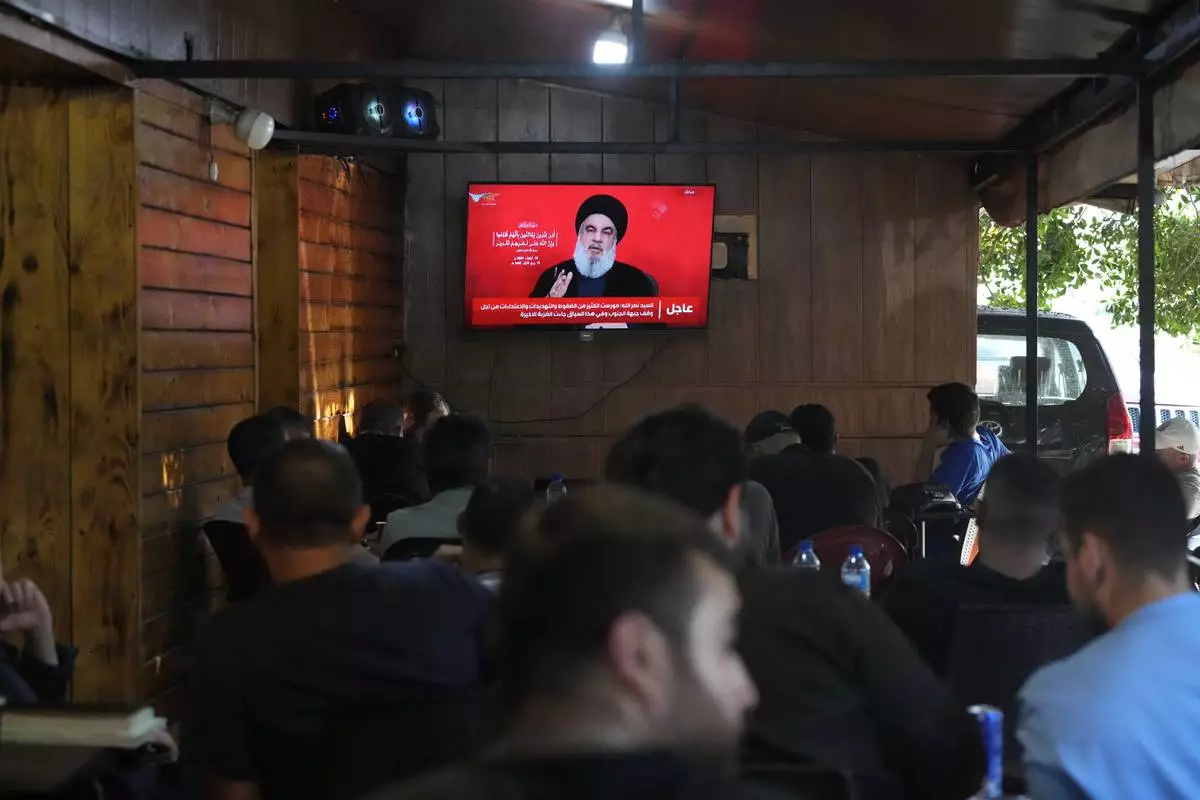
People watch the speech of Hezbollah leader Hassan Nasrallah on a tv screen as they sit in a cafe in the southern suburbs of Beirut, Thursday, Sept. 19, 2024. (AP Photo/Hassan Ammar)
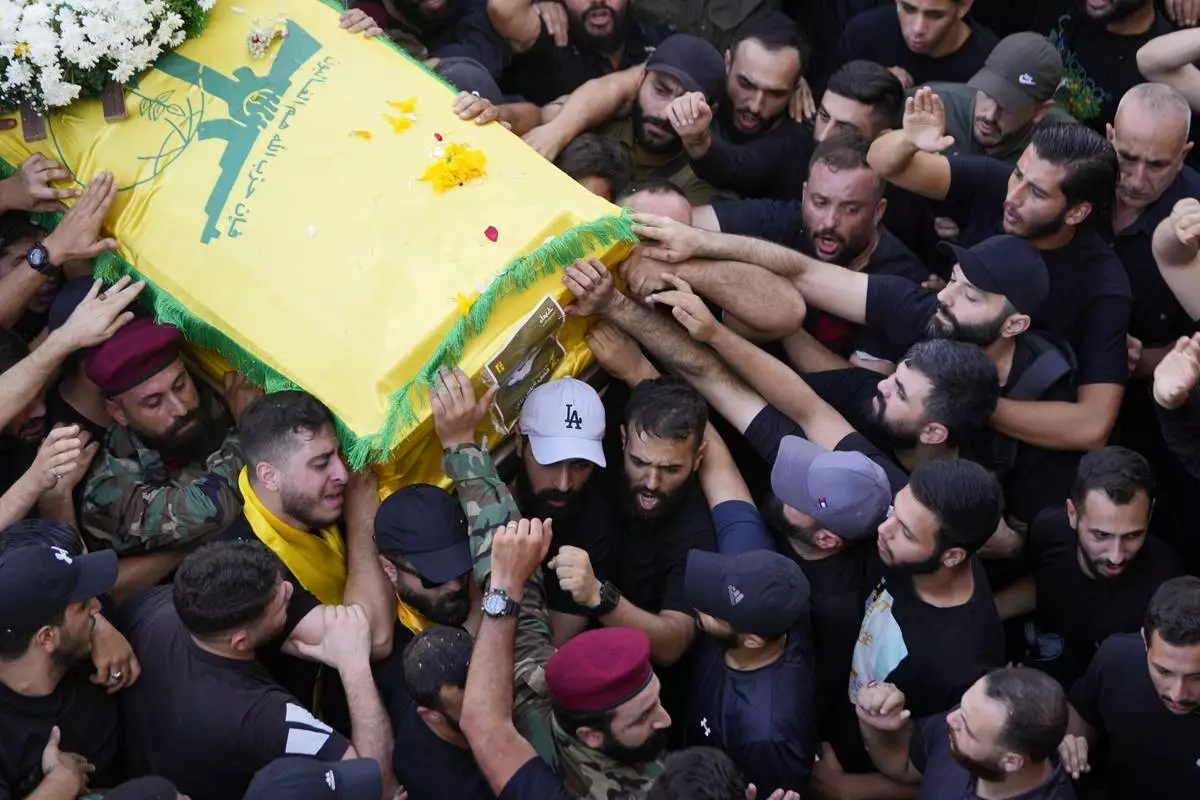
Hezbollah members carry the coffin of their comrade who was killed on Wednesday when a handheld device exploded, during a funeral procession in the southern suburbs of Beirut, Thursday, Sept. 19, 2024. (AP Photo/Hussein Malla)
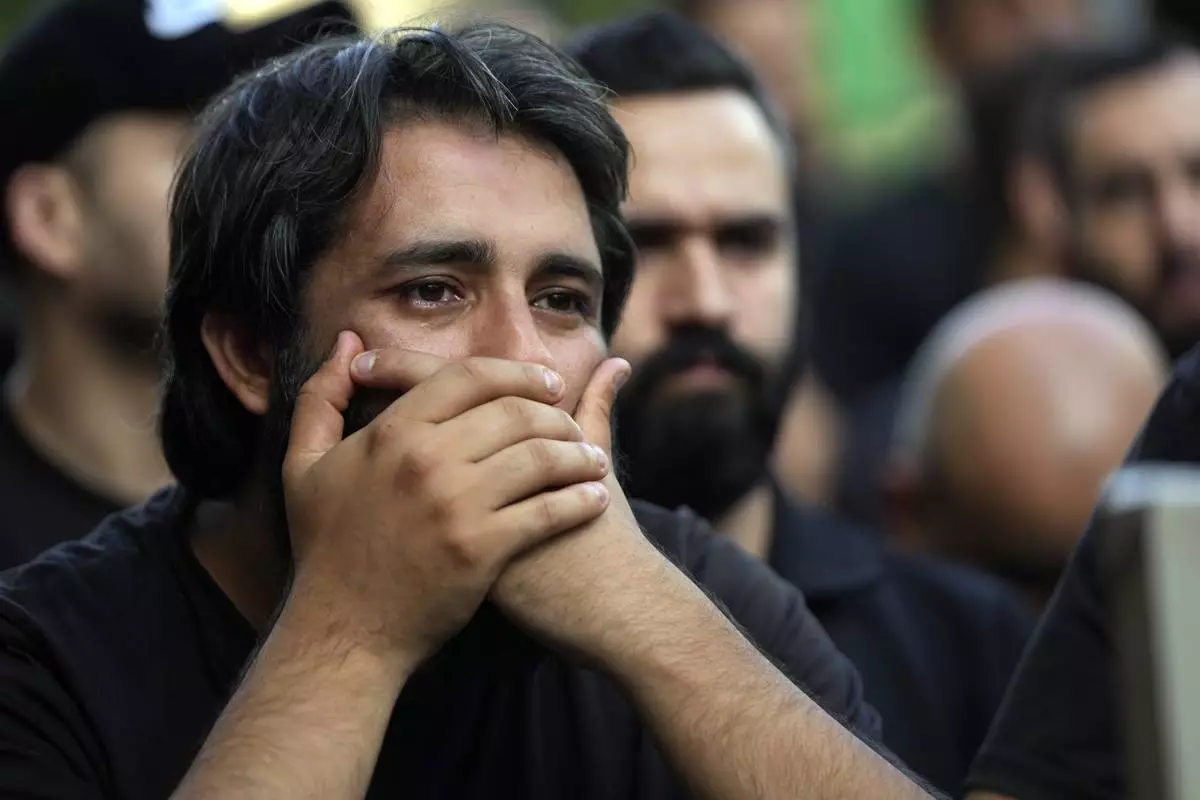
A man mourns during the funeral procession of two Hezbollah members, killed on Wednesday when a handheld device exploded, in the southern suburbs of Beirut, Thursday, Sept. 19, 2024. (AP Photo/Hussein Malla)
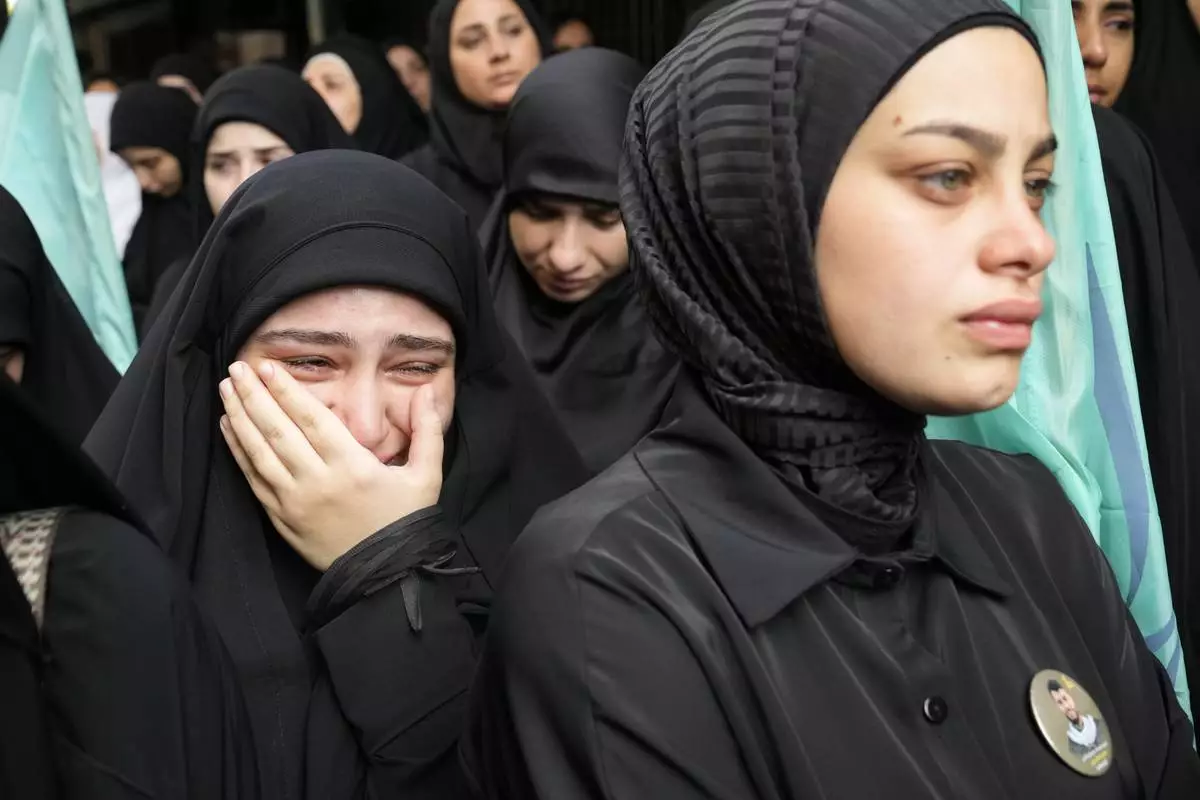
A girl cries during the funeral procession of two Hezbollah members, killed on Wednesday when a handheld device exploded, in the southern suburbs of Beirut, Thursday, Sept. 19, 2024. (AP Photo/Hussein Malla)
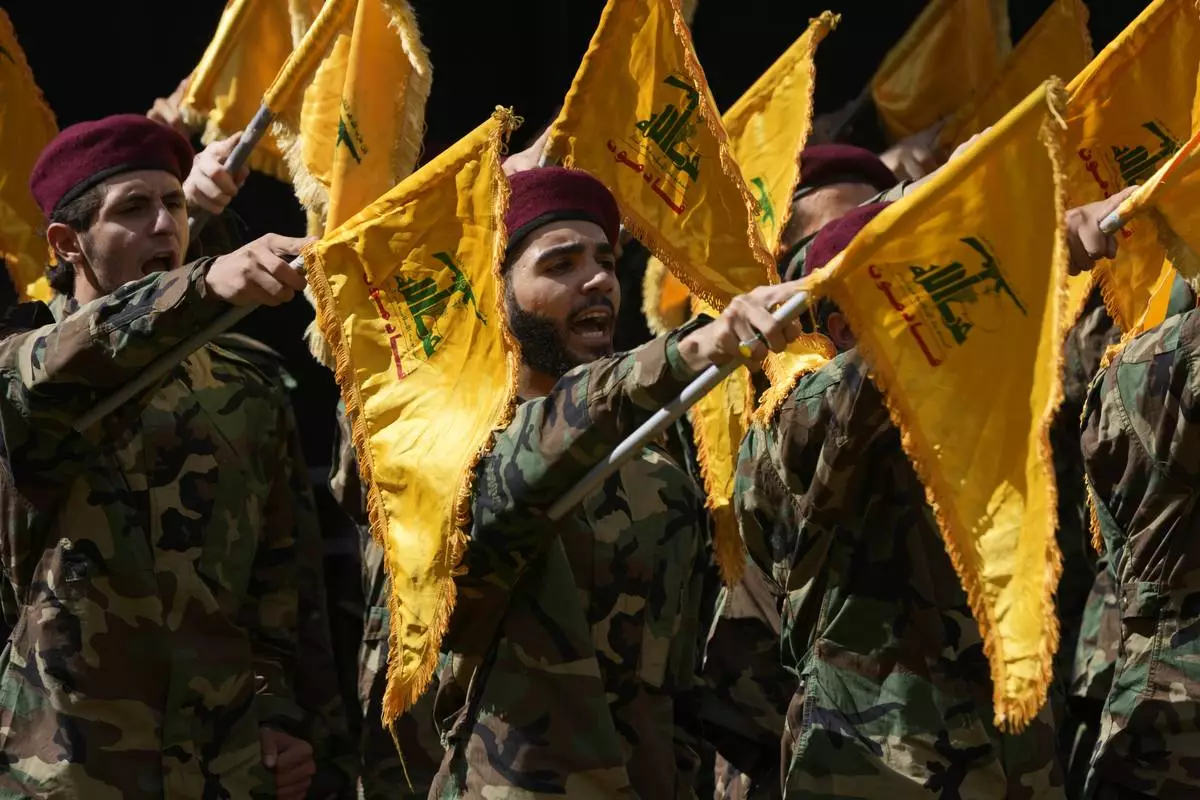
Hezbollah members attend the funeral of two of their comrades who were killed on Wednesday when a handheld device exploded, during a funeral procession in the southern suburbs of Beirut, Thursday, Sept. 19, 2024. (AP Photo/Hussein Malla)
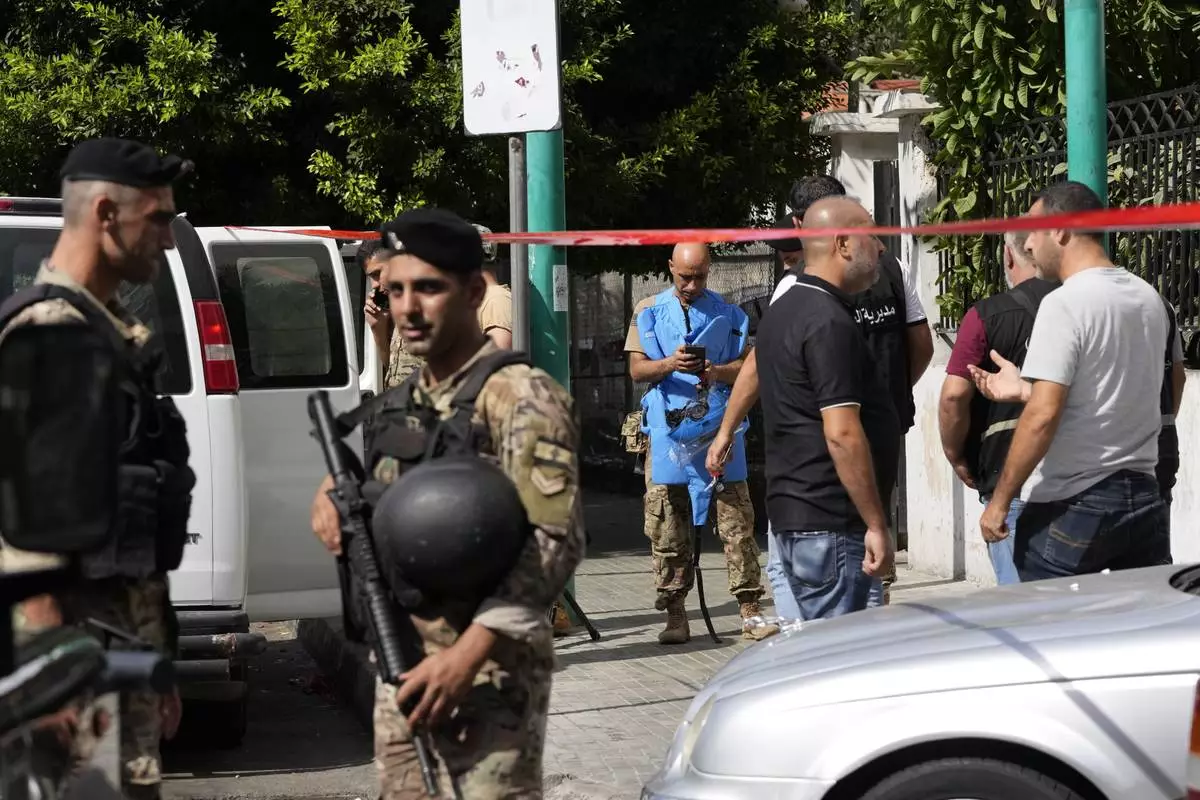
Police tape cordons off the area as security members and an explosive specialist investigate a suspicious device in Beirut, Thursday, Sept. 19, 2024. (AP Photo/Hassan Ammar)
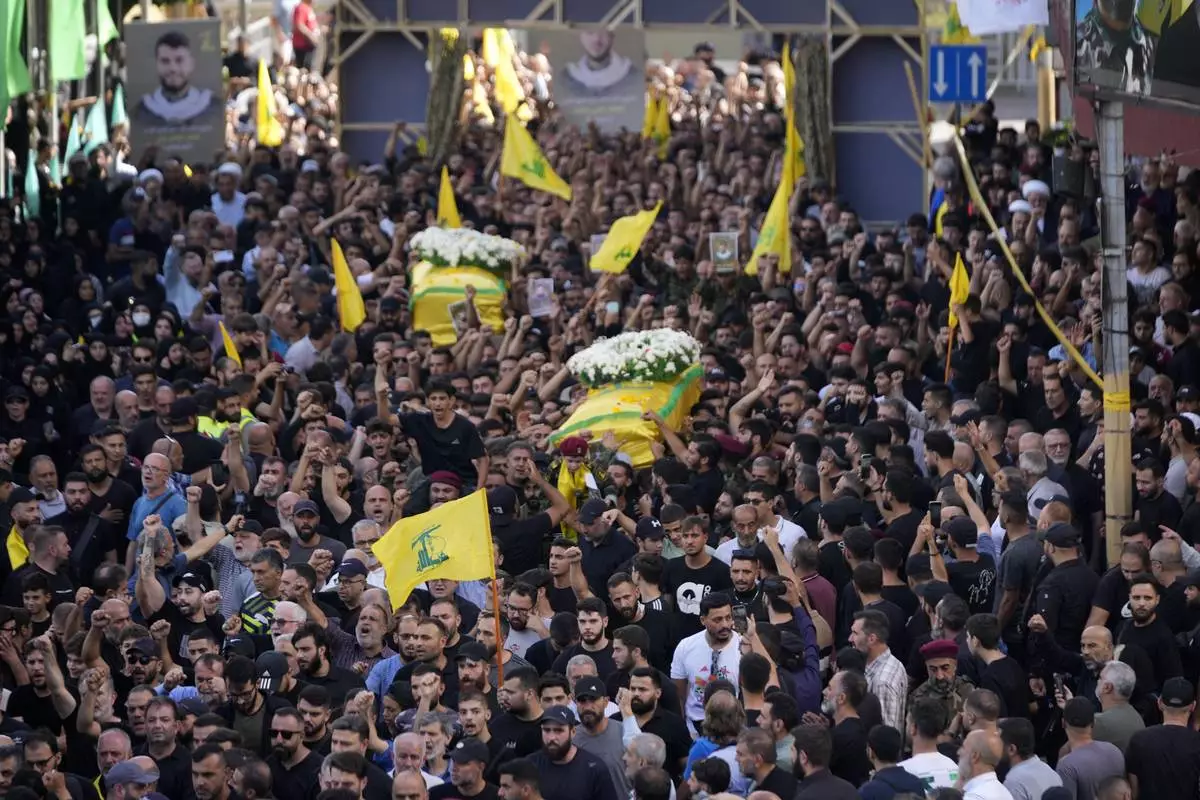
Hezbollah members carry the coffins of two of their comrades who were killed on Wednesday when a handheld device exploded, during a funeral procession in the southern suburbs of Beirut, Thursday, Sept. 19, 2024. (AP Photo/Hussein Malla)
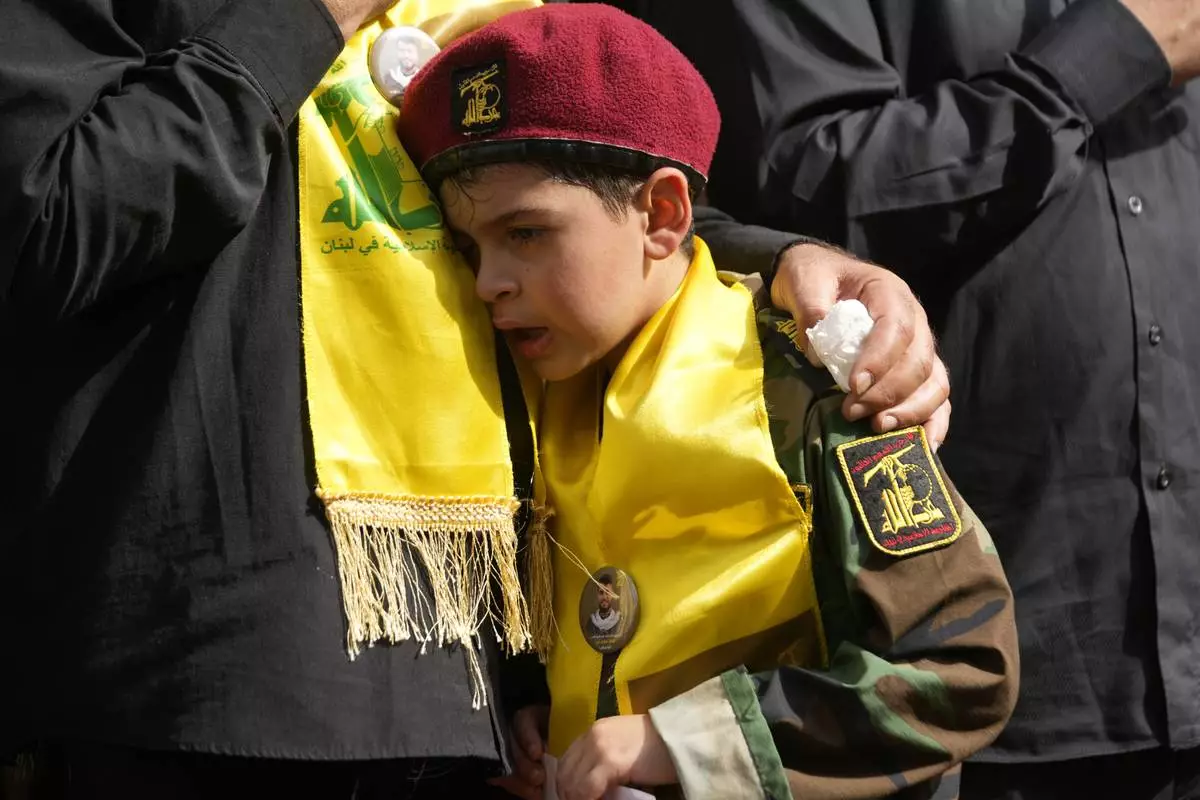
A boy cries during the funeral procession of two Hezbollah members in the southern suburbs of Beirut, Thursday, Sept. 19, 2024. (AP Photo/Hussein Malla)
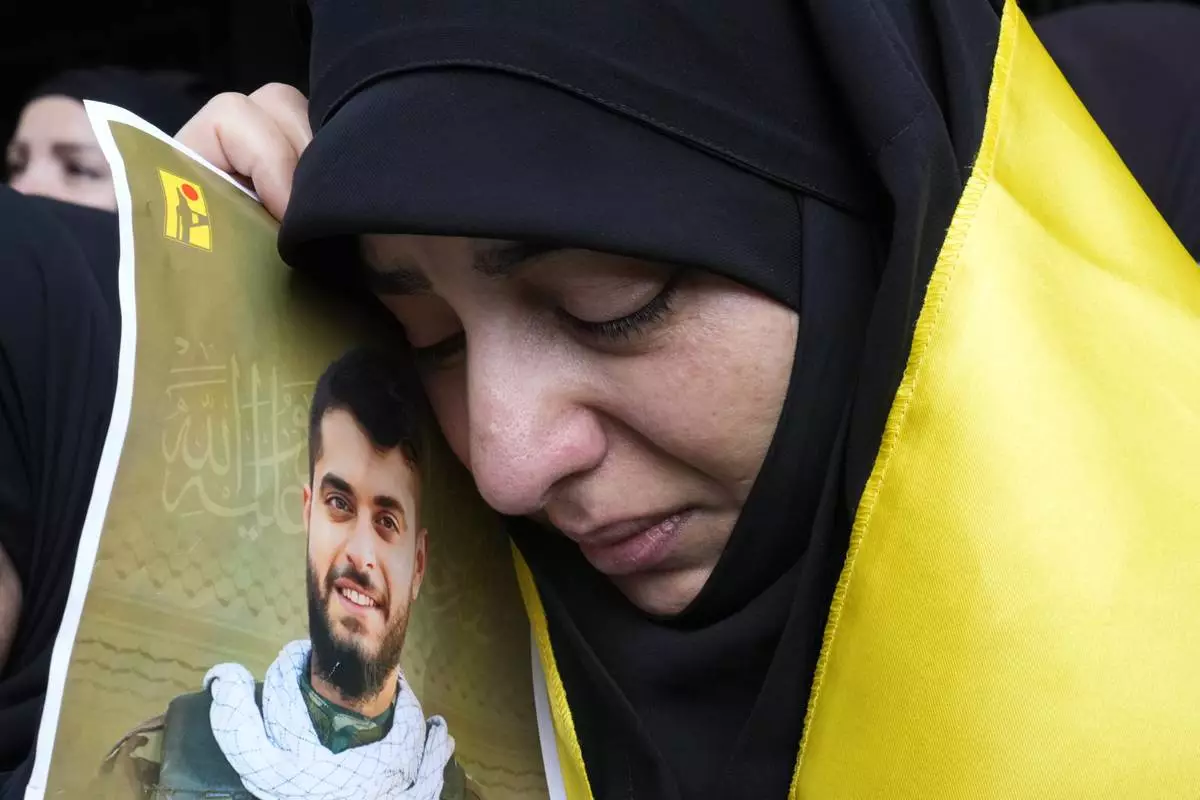
A woman holds a picture of a Hezbollah member who was killed on Wednesday when a handheld device exploded, during his funeral procession in the southern suburbs of Beirut, Thursday, Sept. 19, 2024. (AP Photo/Hussein Malla)
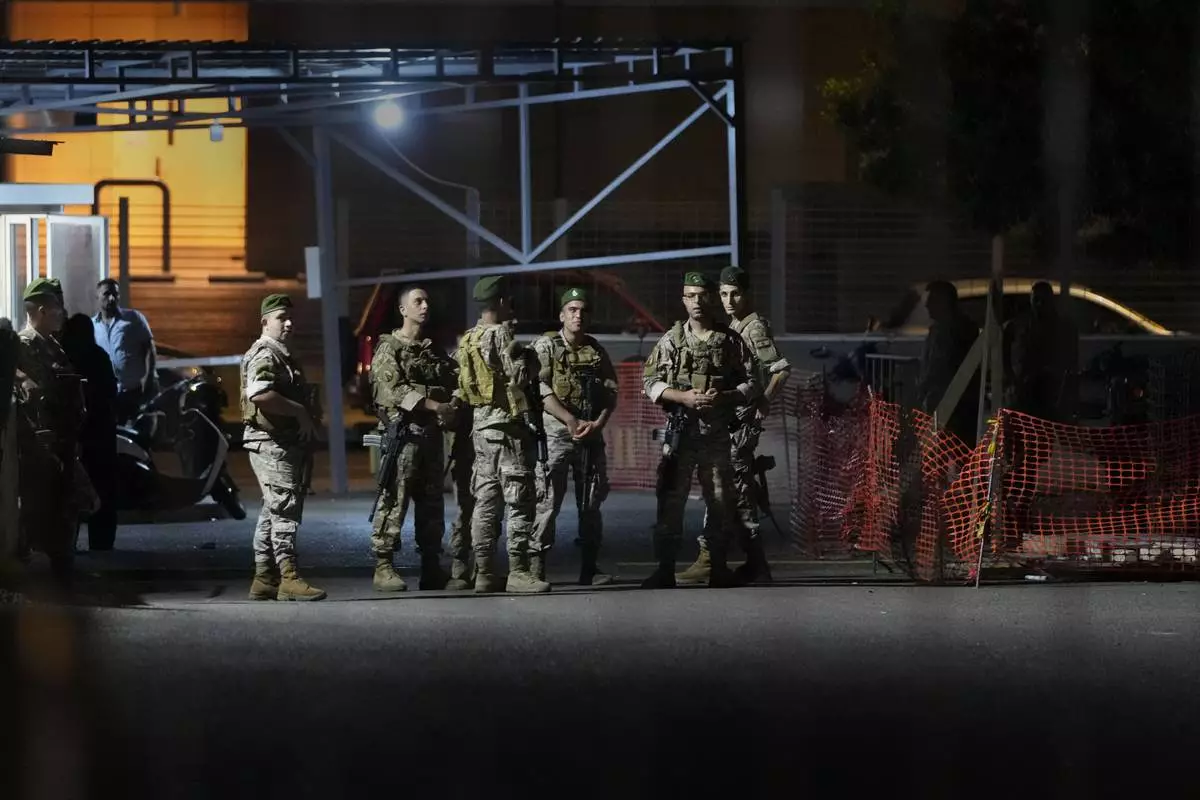
Lebanese soldiers stand guard as their comrades prepare to detonate a walkie-talkie that was found at the parking of the American University Hospital, in Beirut, Lebanon, Wednesday, Sept. 18, 2024. (AP Photo/Hassan Ammar)
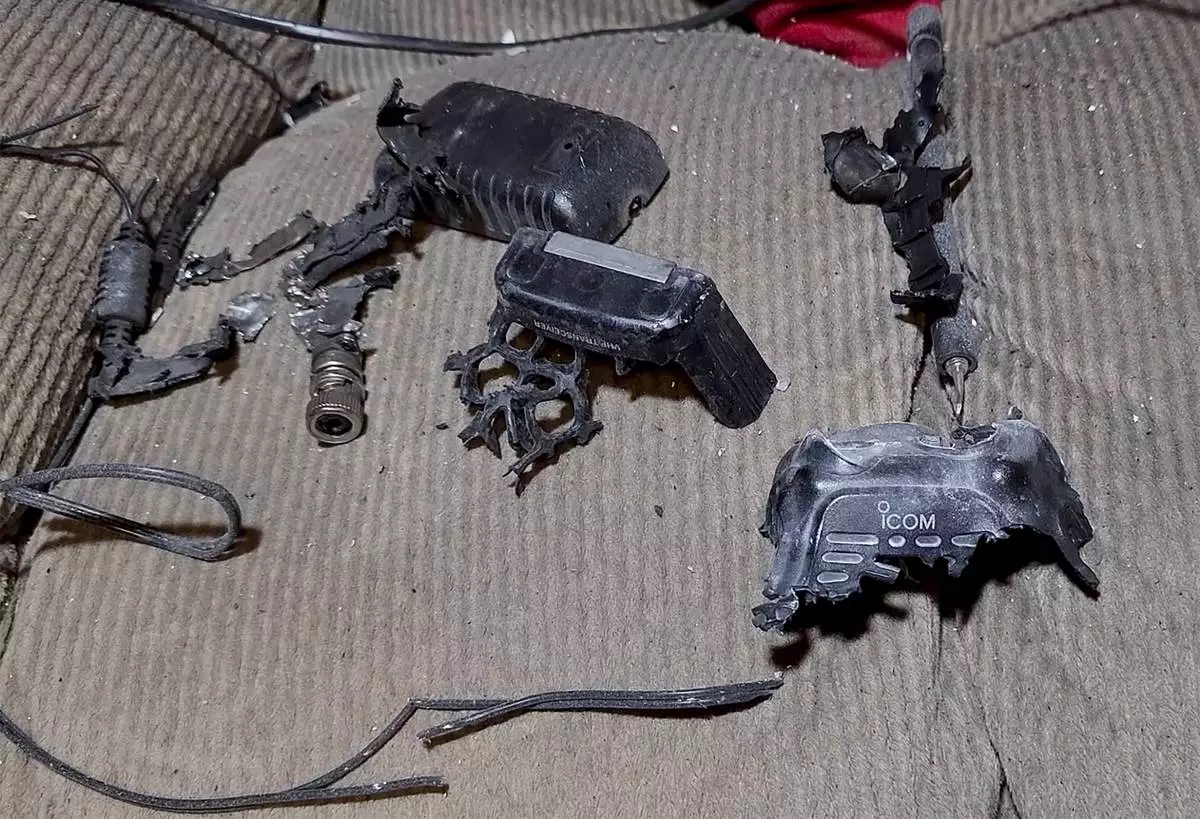
This video grab shows a walkie-talkie that was exploded inside a house, in Baalbek, east Lebanon, Wednesday, Sept. 18, 2024. (AP Photo)
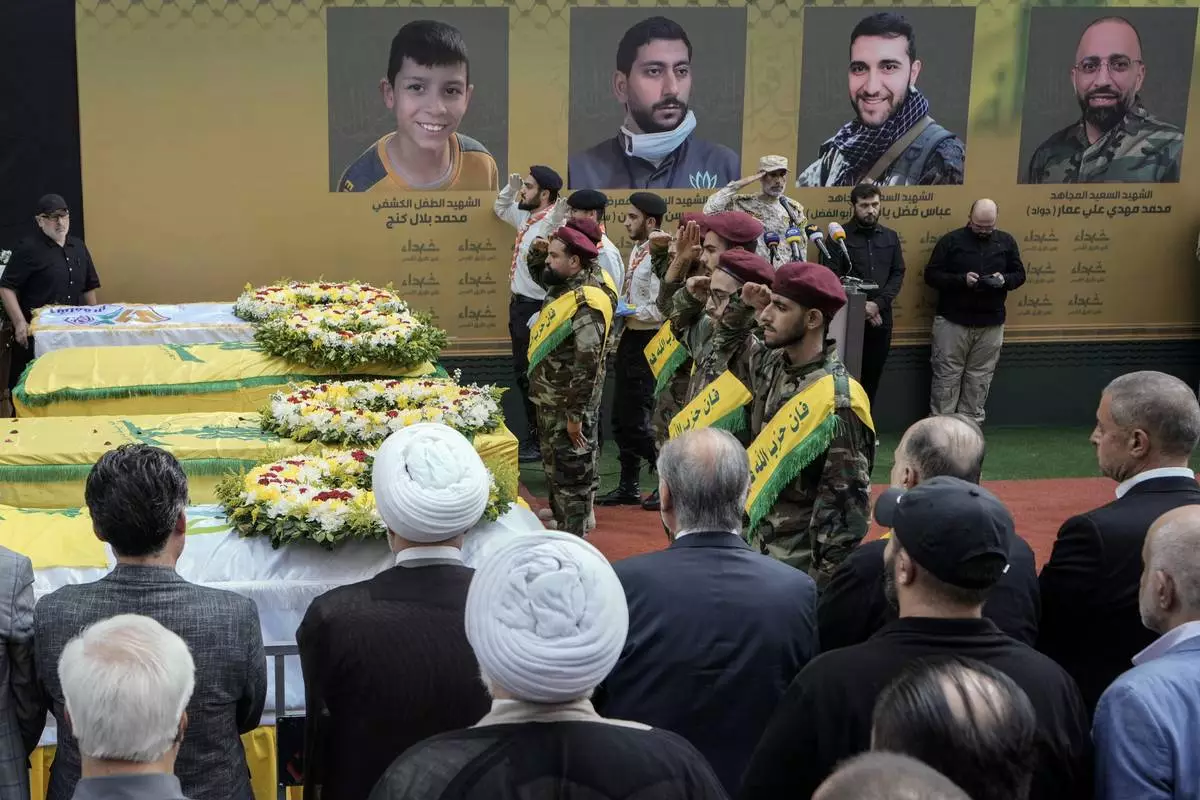
Hezbollah fighters salute as they stand next to the coffins of four victims who were killed Tuesday after their handheld pagers exploded, during their funeral procession in the southern suburb of Beirut, Lebanon, Wednesday, Sept. 18, 2024. (AP Photo/Bilal Hussein)
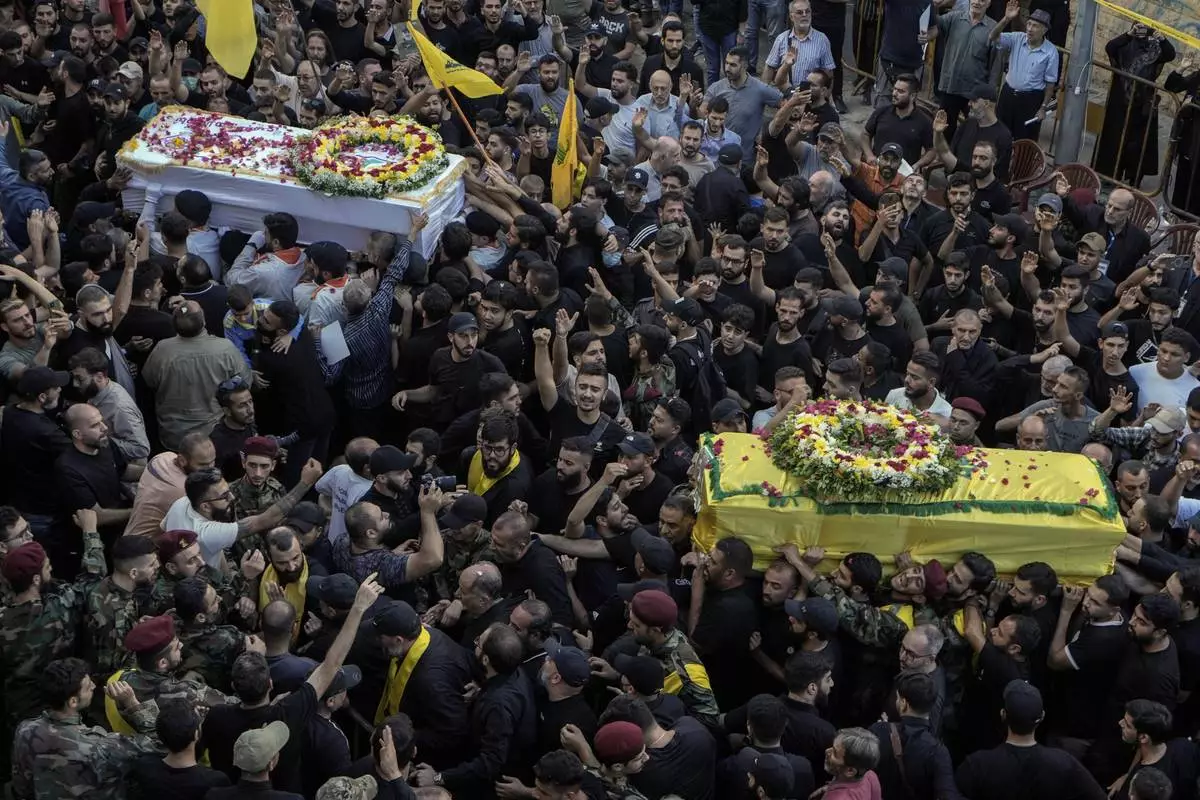
Mourners carry the coffins of victims who were killed Tuesday after their handheld pagers exploded, during their funeral procession in the southern suburb of Beirut, Lebanon, Wednesday, Sept. 18, 2024. (AP Photo/Bilal Hussein)


